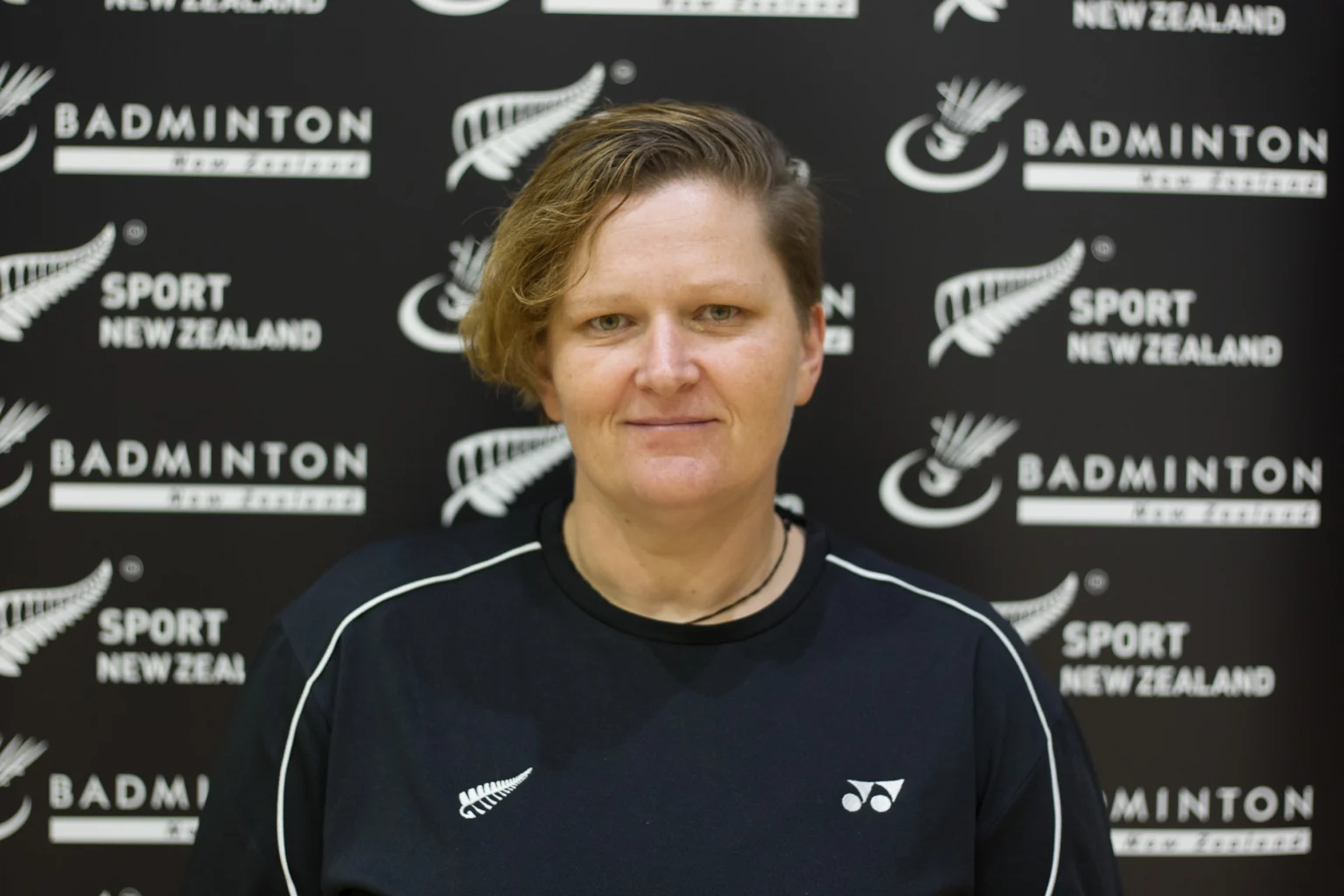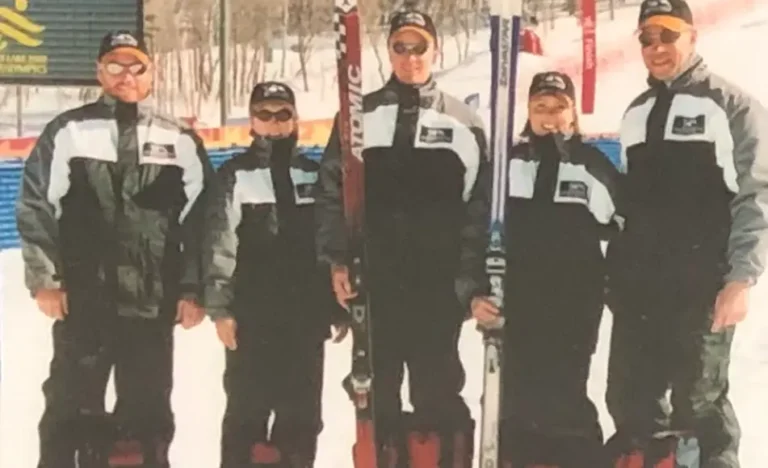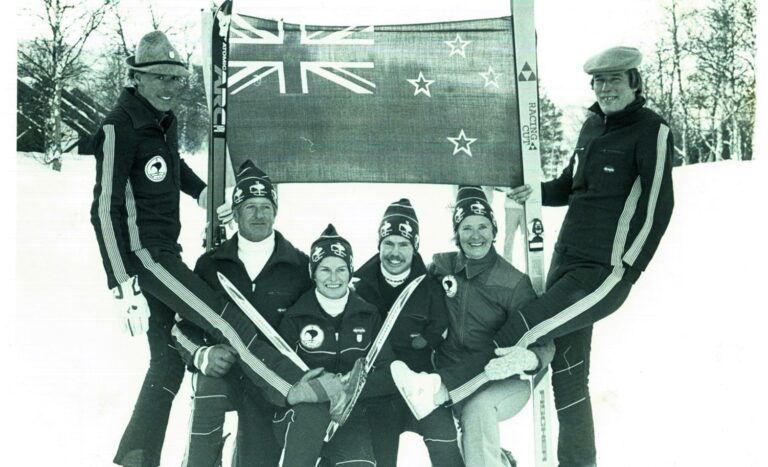Para badminton player and coach Carrie Wilson fully embraced being part of intake one of the Para Sport Collective, supported by ACC. Here the 45-year-old Cantabrian offers her assessment on the transformative powers of how her sport has aided her rehabilitation after suffering an unexpected injury in 2014.
Describing Para badminton as her “happy place” it is hard to quantify the importance the sport has played in Carrie Wilson’s rehabilitation over the past decade.
Sustaining a prolapsed disc which led to footdrop – a paralysis of the muscles which causes mobility issues to the front part of her right foot – knocked her life sideways.
Her life, massively impacted by ongoing pain management issues caused by the condition, has plunged Carrie into bouts of depression and anxiety. Experiencing badly compromised sleep and heavily fatigued, she is no longer able to work full-time, but offering the Christchurch-based teacher a beacon of hope and joy has been her passion for Para badminton.
“People ask me why I still play badminton because in some ways playing the game makes it harder for my body,” explains Carrie. “But it is my happy place. It is the only thing I have in my life now that I had pre-accident.”
Following in the footsteps of her grandmother, mother and two sisters who all played the sport, Carrie first picked up a racquet at the age of ten at the Fendalton Badminton Club in Christchurch.
Showing a natural aptitude for the sport, she quickly progressed to the Canterbury U12 squad – specialising as a doubles and mixed doubles player.
Enjoying the “thrill” of the high-speed sport, Carrie also relishes the challenge of trying to outthink the opposition.
“I like the tactics and deception of badminton,” she explains. “My other main sport was softball – both of which are sports where nobody can intercept the ball as I am about to hit it. I wasn’t suited to sports like netball or hockey where the ball could be intercepted.”
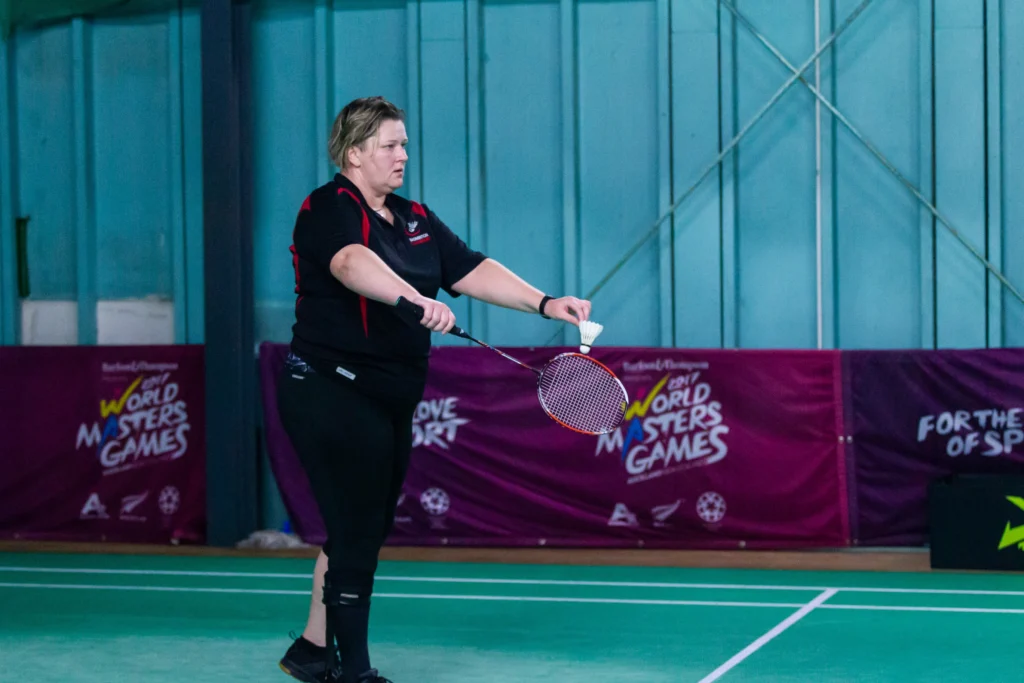
Playing representative badminton for many years, the multi-talented Carrie, a graduate of the National Academy of Singing and Dramatic Arts, took a break from badminton to travel to Canada where she worked as a youth worker and park ranger, and then an English teacher in China.
Returning to Christchurch in 2014 she re-engaged with badminton only for her life to change forever during one social match. Taking on a routine overhead shot she sustained a severe prolapsed disc which badly damaged the perineal nerve, which controls the foot. Having played the shot tens of thousands of times, Carrie was initially baffled by how she could pick up the injury. However, after longer reflection she has a very plausible explanation.
“Back in 2007 I was returning home after working as the teacher on a school musical when I fell asleep at the wheel travelling at 100kmph and smashed into a tree,” she explains. “When the emergency staff arrived, they assumed it would be a fatality, but I walked away with minor injuries, a gash on my leg. I did, however, sustain extensive whiplash and nobody had bothered to check the damage to my back. I was cleared to travel and work overseas, but I definitely think I had a weakness in that area which may have led to the injury.”
Following a third surgery and facing up to the likelihood that her foot would be permanently damaged, took an undoubted toll on her mental health. Unable to walk without the aid of crutches or ski poles she plunged into depression and experienced bouts of anxiety.
Aged 34 at the time she said: “I went through a grieving stage because I didn’t have full movement of my foot, and I couldn’t do the things that I used to be able to. I was also suffering neuropathy pain, I couldn’t comprehend why my foot was burning and on fire. My physio taught me a lot about why I was experiencing the pain because it was like a brain injury through my spine. Even now I’m on an intense pain management programme. After more than ten years I’ve never had a full night’s sleep, it is exhausting. Everyday life is a challenge.”
Hope, initially, came in the form of technology. With footdrop causing significant balance issues, Carrie was given a “game changing” boost when five years ago ACC agreed to fund a state-of-the-art ankle-foot orthotic sourced from Canada which is attached to the outside of the foot. Having previously experienced regular blisters from a support aid that sat inside the shoe and with the new bracelet offering greater foot mobility it gave Carrie hope she could return to the badminton court.
“With the bracelet on it didn’t feel like I was as cautious where I placed my foot and I could play badminton without the fear of snapping or breaking the foot,” she says.
Discovering Para badminton for the first time it took time for her to adapt to playing the sport with a disability. Given that she is right-handed and much of the power comes from the foot where you are holding the racquet she has had to make significant adjustments.
“I tried to play the shots with my left foot forward but found because of all the fine motor skills I’d learned over many years I found it too hard to switch,” she explains. “I still find today that I get frustrated, so I have to adapt my game and think two shots ahead. I am often the older, more experienced player and as many of my opponents are left-handed cerebral palsy players, if I cross the shuttle over to their backhand they are often off balance.”
Within the first year of playing the game she went to the 2020 Oceania Championships in Ballarat and impressed by winning the Women’s Singles SL4 and Mixed Doubles SL4 – alongside Corrie Robinson – in what was a rip-roaring start to her international Para badminton career.
Based out of Badminton Canterbury, Carrie, who today works part-time as a tutor at Kip McGrath, continued to progress and in 2022 enjoyed the “thrill” of competing at the World Para Badminton Championships in Japan. There she enjoyed one victory and two defeats in her pool and while basking in the glow of competing on the global stage for the first time it also instilled in her an ambition to coach others with a disability.
“I’ve personally had so much joy out of playing badminton, not just as a sport but learning many life skills and bonding with others, that I’m more than happy to give back,” she adds.
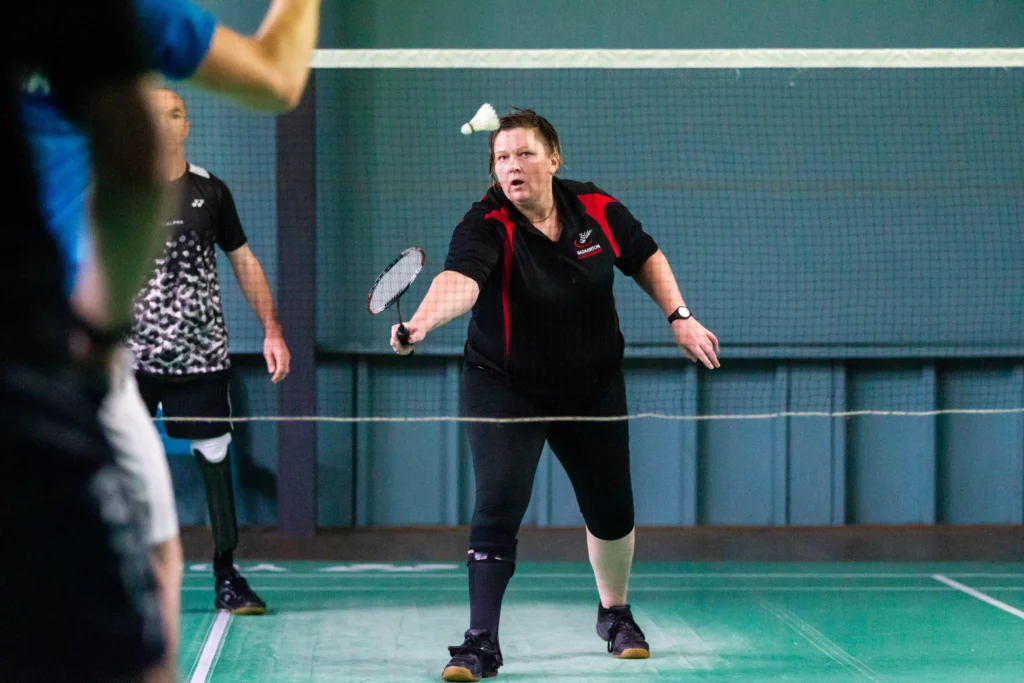
Coaching four wheelchair players in Christchurch has been thoroughly rewarding for Carrie and she is keen in the future to work with more Para athletes with the long-term goal of guiding Para athletes to the LA28 Paralympic Games or Brisbane 2032 Paralympic Games.
Carrie’s Para badminton journey was also boosted as an intake one member of the Para Sport Collective in 2023-24. Invited on to the Collective after a successful nomination by Badminton NZ, Carrie says it was great to connect with so many other people in the sporting realm facing similar challenges. Emphasising the value in making network connections she has taken on many learnings from the Collective, which the Cantabrian has adapted into her sporting life.
“I have since set more goals, and specifically smarter goals both as an athlete and with the Para athletes that I coach,” she adds. “I now talk to them more about what they want to achieve. I learned so much from the Collective – on everything from nutrition to the timing of the warmup.”
Unfortunately, her personal playing ambitions in more recent times have been hampered by her ongoing pain management condition. Enduring day after day of sleepless nights and extreme fatigue has impacted her training regime.
Despite the everyday issues she has not given up hope for her own playing ambitions and in October hopes to feature at the 2025 Oceania Badminton Championships in Bendigo, Australia.
“I would like to win back the Oceania SL4 Singles title I won in 2020 and would like to get my rankings points up to play in more tournaments to see how far I can go.”
Her life post-injury has at times been an immense challenge for Carrie, yet it has been one made much more bearable thanks to Para badminton.
If you would like to find out more about Para badminton go here.

